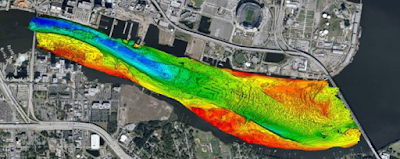Remote Sensing used in Oceanography
 |
| Remote Sensing used in Oceanography |
The first views of the earth from space date back to 1946. They were taken by cameras embedded on rockets. The first manned flights showed the interest of being able to have bases of space observation.
As early as the 1960s, the Gemini and
Apollo flights yielded the first color photographs of the ocean and the earth.
From the end of the 1960s, the TIROS series meteorological satellites
retransmitted images in the visible and infra-red. On clear skies, some
information on sea state and surface roughness can be deduced from the specular
reflection of the sun.
However, it was only from the 1970s that
oceanographers were able to obtain exploitable information on sea surface
temperature and water turbidity through the improvement of the spatial and
radiometric resolutions of sensors sweeping away.
 |
| Appollo |
The applications of their sensor data on color, temperature, dynamic height, waves cover the whole spectrum of oceanography, chemistry, biology, physics, geophysics. The progress made in the study of the ocean through these techniques has been achieved only through constant collaboration between space scientists and oceanographers, so it will be in the future.





No comments:
Post a Comment